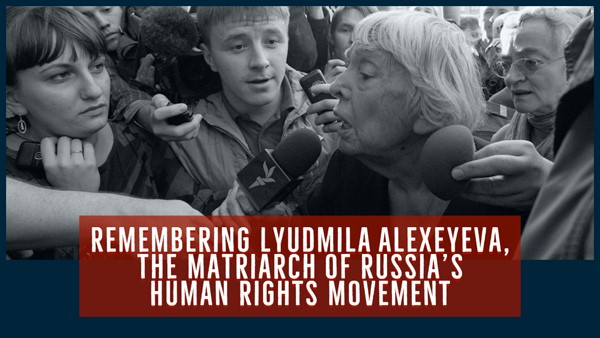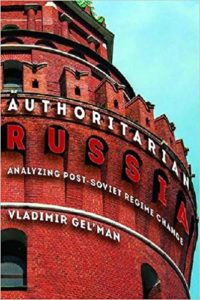
A court in the southern Russian city of Rostov-on-Don has ordered house arrest for Anastasia Shevchenko, a coordinator at the Open Russia civil organization, under an “undesirable organizations” law that came into effect in May 2015, Radio Free Europe/Radio Liberty reports. The ruling, which was pronounced on 23 January, was meant as a preventive measure against Shevchenko fleeing the country, RFE/RL adds, citing Russian daily Kommersant [HT; Transitions Online]:
The first organization targeted under the “undesirables” law in July 2015 was the National Endowment for Democracy (NED), whose work in Russia has been illegal ever since, Amnesty International wrote. At that time, the Office of the Prosecutor General said that NED’s activities were a threat to the “constitutional order of the Russian Federation, defense potential, and security of the state.”
The Russian government relentlessly reduced space for peaceful dissent, political opposition, and civic activism in Russia during 2018, according to Human Rights Watch’s annual report.
Law has long been exiled to the periphery of Russian history, yet Russia’s pursuit of legality and legal reform stretches across three centuries and three distinct political regimes. Introducing his new book, “Law and the Russian State”, at a forthcoming Wilson Center event, William Pomeranz will analyze the essential features and continuities in Russian law that have enabled the state in its various incarnations to govern a diverse and dispersed multinational population. He will discuss how alternative understandings of law have periodically challenged the Russian state and its monopoly on power. Thursday, February 7, 2019. 3:30pm-4:30pm. 5th Floor Conference Room. RSVP
 Lyudmila Alexeyeva was a pioneering figure in the field of human rights. In 1976, she helped launch the Moscow Helsinki Group (MHG) – the first major independent human rights movement in the Soviet Union – to demand that the Soviet government honor its international human rights commitments under the Helsinki Final Act. She dedicated her life to activism, motivated by her belief that independent civil society and strong institutions are crucial safeguards for democracy and human rights.
Lyudmila Alexeyeva was a pioneering figure in the field of human rights. In 1976, she helped launch the Moscow Helsinki Group (MHG) – the first major independent human rights movement in the Soviet Union – to demand that the Soviet government honor its international human rights commitments under the Helsinki Final Act. She dedicated her life to activism, motivated by her belief that independent civil society and strong institutions are crucial safeguards for democracy and human rights.
A staunch advocate for independent labor unions, she returned to Russia in the early 1990s after 16 years of exile in the West to assist the growth of the country’s nascent organized labor movement. The bold leadership of Lyudmila and the MHG were crucial to the growth and development of Russian civil society, and throughout her life Lyudmila remained an unwavering beacon and example for Russian activists, appearing at protests, conducting solidarity pickets, and speaking out for victims of human rights violations.
Please join the National Endowment for Democracy, the Solidarity Center, and the Free Russia Foundation as we honor Ms. Alexeyeva’s pioneering contributions to democracy and human rights, and as we highlight their impact on civil society and foreign policy in today’s Russia.
Featuring a conversation with*
Ambassador John Tefft, U.S. Ambassador to Russia, 2014-2017
Catherine Cosman
Ambassador Daniel Fried, Distinguished Fellow, Future Europe Initiative and Eurasia Center at the Atlantic Council
Leonid Gozman, President of the Union of Right Forces
*Additional Speakers may be added
moderated by
Miriam Lanskoy, Senior Director for Russia and Eurasia, National Endowment for Democracy.
Thursday, February 14, 2019
10:00 a.m.–12:00 p.m.
Capitol Visitor Center, Room SVC 209-08
First St. NE, Washington, DC 20515
All guests must register online ahead of the event due to security reasons. Registration closes February 13th.








